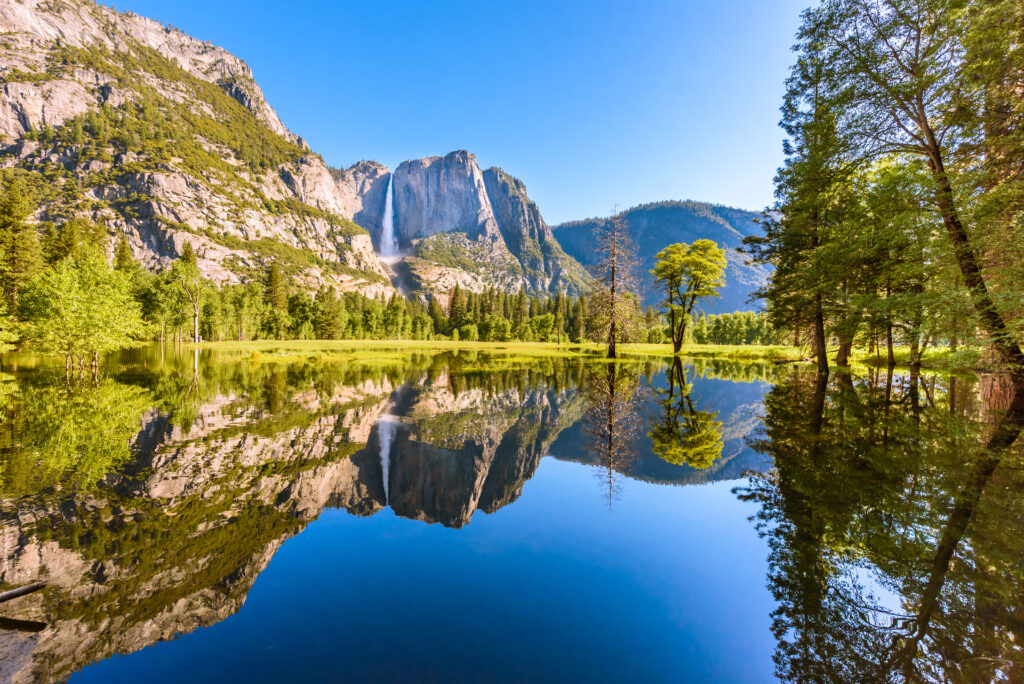Supreme Court refuses to consider filmmaker’s appeal leaves content creators at risk
CLIENT ALERT:
Price v. Garland. 45 F.4th 1059 (1st Cir. 2022) (cert Denied USSC No. 22-665. (2023))

In Price v. Garland, a documentary filmmaker named Gordon Price was charged with a misdemeanor for filming parts of a feature film on land administered by the National Park Service (NPS) without obtaining a permit and paying the required fee. The government later dismissed the charge. But Price continued his suit for declaratory and injunctive relief, arguing that the permit-and-fee requirements were “facially unconstitutional” under the First Amendment to the Constitution of the United States.
The trial court agreed and issued the requested relief holding that the permit-and-fee requirements do not satisfy the heightened scrutiny applicable to speech in a public forum. But a divided panel of the U.S. Court of Appeals for the D.C. Circuit disagreed, and overturned that decision , holding that regulation of filmmaking on government-controlled property is subject only to a “reasonableness” standard, even when the filmmaking is conducted in a public forum, and finding that the regulation in question is reasonable.
Last month, Price's appeal to the U.S. Supreme Court was rejected , leaving the appellate court's ruling to stand. So, it seems, in the 1st Circuit, at least, anyone can be fined and even jailed for commercial filming, regardless of the First Amendment.
What this means for content creators
That's right, anyone can be fined and jailed for commercial filming in government parks… even after-the-fact. Think about that. You take your family vacation to Yellowstone, Mt. Rushmore, or Yosemite, and you capture some beautiful video. Then, you post it on Youtube. If you monetize that video, it just became commercial., and you could be fined, penalized, or even jailed for violating the park service's fee-and-permit regulations. Same could happen if you capture a great still image and decide to offer it for sale via a stock-photo agency?
Do a livestream on your monetized YouTube channel from inside the park? Bingo. You need a filming permit. And that costs.
Selling art-prints of your photos of El Capitan or Half Dome. Yup. (I'm talking to you, future Ansel Adams')
What to do
There are a few things we as creators can do to address this situation.
- Don't monetize your work. Ever. Period.
- Get the permits. (As understand it, the permit Price should've obtained would've cost $500 if obtained before filming… and there were penalties and interest tacked on later since he didn't).
- Write to your congressional representatives and ask them to address the situation.
Why/When Permits SHOULD be required
The whole reason these fee-and-permit regulations exist is ostensibly about managing federal park resources.. so that the public at large has access that's not encumbered or blocked by large-scale filming operations. It's true, a full-blown feature-film crew shooting in a national park involves hundreds of trucks, tons of equipment, and hundreds of people. In such situations, it's appropriate that the filmmakers pay for their exclusive use of the public resources, added security and supervision, etc. But when it's one person, a tripod and a camera? The regulation doesn't make sense.
My take
Obviously, I think the 1st Circuit got this one wrong. Filmmaking IS speech – expressive activity that's protected by the 1st Amendment, and any regulation of such activity should be subject to elevated scrutiny to make sure it's not an undue burden on our fundamental freedoms.

awesome news break! Well written, per normal. Great rationale. Seems like a complex issue. What do you think needs to happen to overturn / fix this in the way you’d like to see it be done?